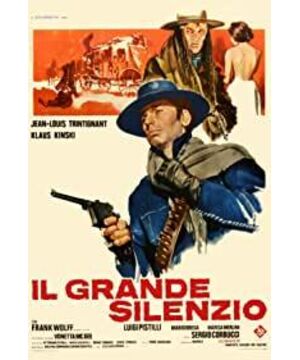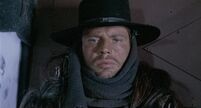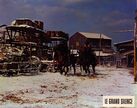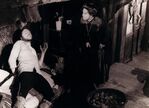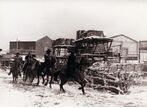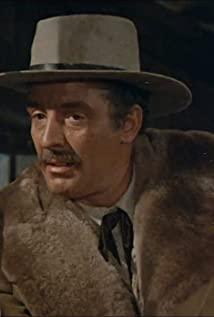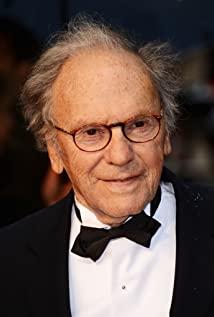In this regard, I don't think that "silence" necessarily represents the so-called good person-he is an avenger and has turned from an avenger to a paranoid-in this sense, he is not much different from those bounty hunters. Bounty hunters live for money, and "silence" lives for their own justice-is there really a moral difference in their beliefs?
... Regardless of the morality of the black widow and the shopkeeper, whoever has the advantage is more worthy of sympathy, and their behavior in hiring killers is the same. same. Because Xueling's lifestyle is to use guns. So, what is the essential difference between the "silent" bounty hunters that ambush at the beginning and the outlaws that come down from the mountain? Even if they did, they all had guns in their hands. And at gunpoint, there is no justice at all. Some are just violence.
It should be said that Kobusi’s creation of this quiet and violent world is aesthetically pleasing-that is, what we call "violent aesthetics"-real violence is not a gorgeous style of mutual vengeance, but a random death. Footsteps, adopting unprincipled principles, wantonly swallowing everyone. At this point, the massacre at the end can be described as naturalism that emphasizes reality. The death of "silent", labelled as a "good guy", further clarifies the rules of the violent world: all thugs must die.
Let’s talk about technical issues: the
opening scene is too pale—especially the protagonist’s big vision. This technical work is still rough even if it is left in 1968—it’s nothing more than to show the protagonist’s positive image, not good.
The silhouette passage of Kinsky chasing the "thug"-this should be used as the opening. The tension, momentum and suspense are all available, and the music can be described as perfect...Speaking of Kinsky, his performance in this film is average. On the contrary, the hunchback who was provoked by Li Wen in The Fistful of Dusk was wonderful and vivid. That is to say, the image of Kinsky in this film is too calculated and lacks madness. Coupled with photography reasons, to be honest, his image is completely dwarfed and the impression is mediocre. Why does he often laugh? In order to play the role of a good "bad guy"? But Kinsky is most suitable for acting as a madman.
In the last paragraph, when the outsiders returned to the town, there were problems with the exposure and the filter. The colors were bright, blurred, and floating, and when the "silence" died, the colors were dark again.
To sum up, the film is not bad, but it is lacking in terms of effort. It could have been colder and harder-even if it was to break through the thinking routines of traditional westerns-the image formation is worthy of discussion (and shouldn't "silence" be bitter, he can be more ugly , It’s a bit bitter), but it gives me a good impression. It is a work worthy of fun.
View more about The Great Silence reviews


